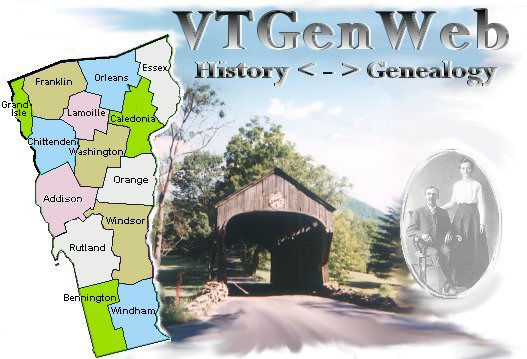The county of Bennington was brought into existence by virtue of an
act of the General Assembly of the State of Vermont, passed on the 17th
of March, 1778. According to the provisions of that act the boundary
lines of the county were established substantially as follows: South by
the north line of the " Massachusets Bay" (meaning the State); north by
the south line of the province of Quebec; east by the main range of the
Green Mountain chain, through the center of the State; west by township
lines of the townships now forming the west boundary of the State from
the Massachusetts north line to Lake Champlain, and by the lake to the
Canada line. By the same act that portion of the State lying between the
Green Mountains and the Connecticut River, and between the north
boundary of Massachusetts and the south line of the province of Quebec,
was formed into another county and known by the name of Unity. By an act
passed in February, 1779, th.e boundary lines were defined, and the name
of Unity changed to Cumberland. This seems to have been the first actual
division of the State into counties under recognized authority, although
the (General Assembly in session the year before (1778) did also pass a
resolution appointing a committee "to join a committee from the council,
to draw a bill to be laid before this Assembly for dividing the State
into fotu' counties." But as to whether any such bill was drawn there
appears no record, either in the journal of the Assembly or in the laws
enacted at that period. In the month of February, 1781, the county of
Bennington was reduced to its present limits.
Prior to the passage of the resolution act by which the independence
of the State, under the name of New Connecticut but subsequently changed
to Vermont, was asserted, all the territory, or nearly all, was known as
and called the New Hampshire Grants; and so named and styled from the
fact that the governor of the province of New Hampshire, holding and
exercising authority over the same by virtue of the royal charter, had
made numerous grants of extensive tracts of land lying between the
Connecticut River and a
line twenty miles east of the Hudson River, to divers persons as a
reward for political fealty, and for consideration not expressed. Each
grant created a township, which was generally named in the instrument
that brought it into existence. (read more - see History of Bennington
County) [archive.org]
Index to The Vermont Historical Gazetteer: A Local History of
All The Towns in the state, transcribed by Rod Skinner (former county
coordinator for Windham County, VTGenWeb), 2006. The VERMONT
HISTORICAL GAZETTEER is a 5 volume set of historical information by Abby
Maria Hemenway, with Volumn I published in 1867, and Volume V completed
in 1891 after her death. Thank you! Thank you to Rod Skinner!
Index to The Vermont Historical Gazetteer: A Local History of All
the Towns in the State, transcribed by Rod Skinner (County Coordinator
for Windham County, VTGenWeb), 2006.
Vermont
Historical Gazetteer, Volume I (contains Bennington County), by Abby
Maria Hemenway, Ludlow, Vt.: Miss A. M. Hemenway, 1862.
The Vermont Historical Gazetteer: A Magazine, a Local History of All the
Towns in the State, Civil, Educational, Biographical, Religious and
Military, Vol. V. The Towns of Windham County, With Histories of Sutton
in Caledonia County, and Bennington in Bennington County , collated
by Abby Maria Hemenway. Brandon, Vt.: Mrs. Carrie E. H. Page, 1891.
|



